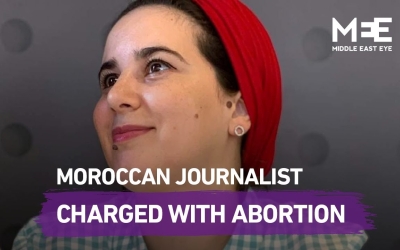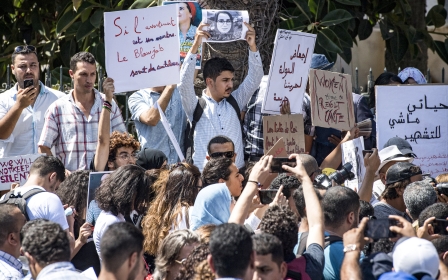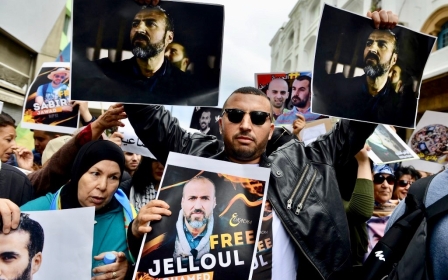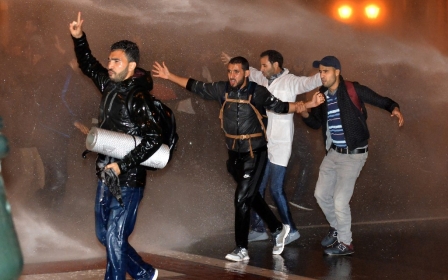Moroccan journalist gets one-year prison sentence over abortion charge
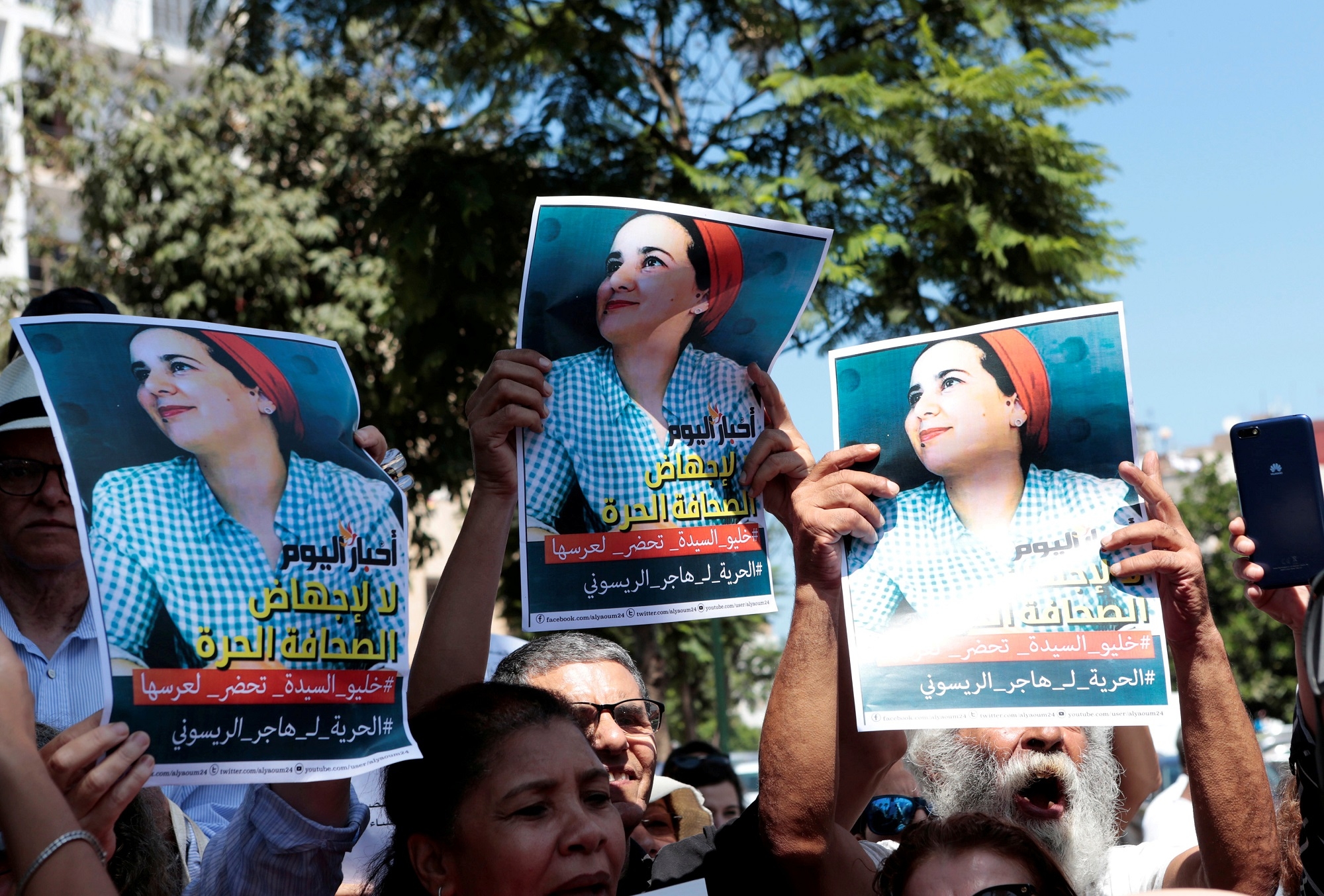
A Moroccan court on Monday sentenced journalist Hajar Raissouni to one year in jail for an "illegal abortion" and sexual relations outside marriage, provoking rebuke from rights groups.
The court also sentenced Raissouni's fiance to a year in prison and her doctor to two years in prison and two years probation. The doctor's assistant and a nurse at the same clinic were given suspended sentences.
New MEE newsletter: Jerusalem Dispatch
Sign up to get the latest insights and analysis on Israel-Palestine, alongside Turkey Unpacked and other MEE newsletters
"This trial had no foundation - the accusations were baseless," said Abdelmoula El Marouri, a defence lawyer for Raissouni, after the verdict, AFP news agency reported.
Raissouni has denied the charges against her, saying that they were politically motivated.
Relatives of Raissouni and the doctor's lawyer told AFP that they would appeal the decisions.
AFP reported that Raissouni appeared calm on arrival at the courtroom, waving to her relatives before taking her place in the dock.
Raissouni, who works for the Akhbar al-Yaoum daily newspaper, was arrested on 31 August.
Her detention has caused an international outcry, with rights groups accusing Morocco's authorities of violating the journalist's privacy and basic rights.
'A black day for freedom'
On Monday, rights groups were quick to condemn the verdicts.
Amnesty International described the sentences as a "devastating blow for women's rights in Morocco".
Instead of "publicly slandering Hajar Raissouni... and convicting her on unjust charges, Morocco’s authorities should revoke her conviction and order her immediate and unconditional release" and all others convicted in the case, said Heba Morayef, Amnesty's Middle East and North Africa director.
Ahmed Benchemsi, the regional director for Human Rights Watch, described the sentencing of Raissouni and her fiance as "a black day for freedom in Morocco".
The verdicts were "a blatant injustice, a flagrant violation of human rights, and a frontal attack on individual freedoms," he wrote in one of a series of tweets.
'Torture'
The prosecution had insisted that the journalist showed signs of pregnancy and of having undergone a "late voluntary abortion", AFP reported.
It had contended her detention had "nothing to do with her profession as a journalist".
Raissouni said she had been "forced into a medical examination without her consent".
Her lawyers said the examination was a "humiliation tantamount to torture", while they also pointed to "judicial police failures" and "fabricated evidence", AFP reported.
In a letter to her colleagues early in September, Raissouni said security forces interrogated her about her work as a journalist.
"They questioned me about my political writings... more than they asked me about the charges levelled against me," she wrote.
Fighting for abortion rights
Raissouni was sentenced under a Morocan legal code that punishes sexual relations outside marriage and forbids all abortions unless the mother's life is in danger.
NGOs say between 600 to 800 women have clandestine abortions every day in the country, but last year only 73 were tried for having abortions.
In a statement published on 23 September by Moroccan media outlets, hundreds of women declared themselves "outlaws" by claiming to have already violated the "obsolete" laws of their country on abortion and other social norms.
In the early 1970s, in a similar text, a group of French women declared that they had an abortion when it was still illegal.
Middle East Eye delivers independent and unrivalled coverage and analysis of the Middle East, North Africa and beyond. To learn more about republishing this content and the associated fees, please fill out this form. More about MEE can be found here.


